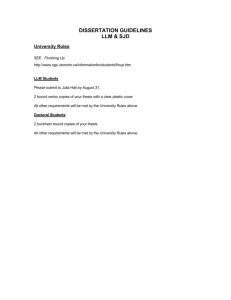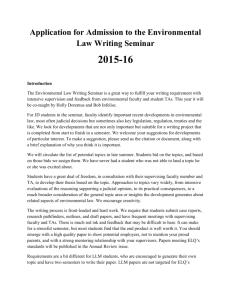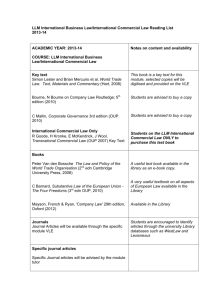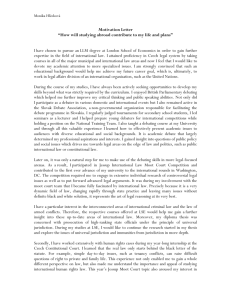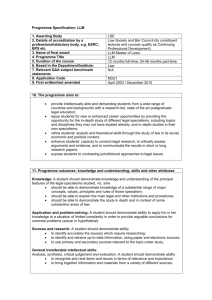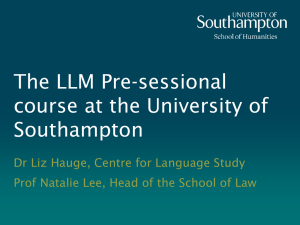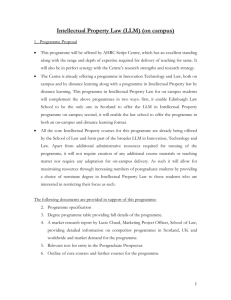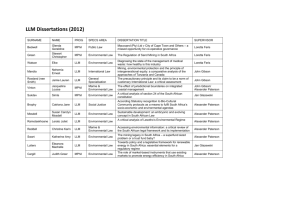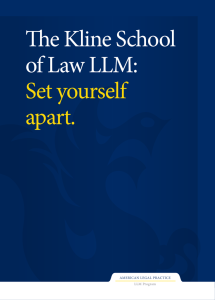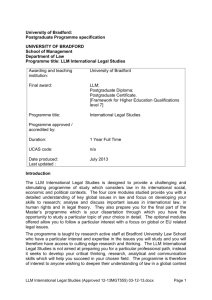9,8 MB - Centre for Human Rights
advertisement
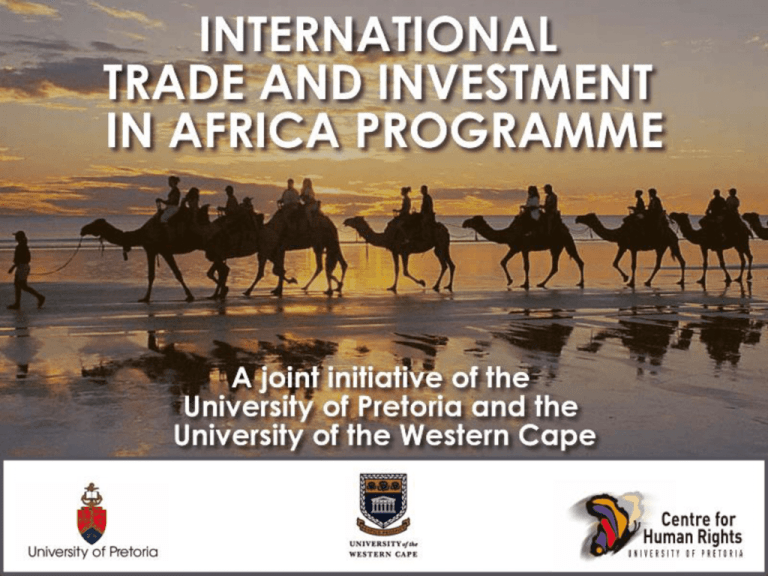
The International Trade and Investment in Africa Programme has the following components: 1. The Masters Degrees in International Trade and Investment in Africa: Law (LLM) and Economics (MCom) 2. The African Trade Moot 3. The African International Trade Review First component: Masters Degrees in International Trade and Investment in Africa • UP and UWC, with their partners, present the following degrees: LLM Partners: The LLM class of 2005 with Prof Loretta Feris (UP), Mr Gerardo Thielen (WTO) and Adv Riekie Wandrag (UWC) LLM Partners: Students and the Rector of UWC at the graduation ceremony in 2004 LLM Partners: LLM students with Dr James Mathis and Milos Barutciski, guest lecturer from the US, at the University of Amsterdam LLM Partners: International Trade and Investment students at the World Bank, Washington D.C. Lecturers in the LLM programme are drawn from: • World Trade Organisation (WTO) • World Intellectual Property Organisation (WIPO) • Food and Agricultural Organisation (FAO) • South African Institute of International Affairs (SAIIA) • Trade Law Centre for Southern Africa (tralac) and • Various academic institutions locally and abroad. “The LLM program in Africa equips students of international trade law with the necessary tools to contribute to the strengthening of human and institutional capacities of their countries in the trade policy field. The careers of past graduates is a testament to the program's success.” - Edwini Kessie, Counsellor WTO Lecturers in the MCom programme are drawn from: • The World Trade Organisation (WTO) • South African Universities • Foreign universities (University of Toronto, Canada; Simon Fraser University, Canada; Monash University, Australia; Fordham University, USA) • Banks (Standard Bank of South Africa) • Kenya Institute for Public Policy Research and Analysis “The facilities and administration associated with the MCom programme has been first class. But it is the quality of the students that have pleased us most. The course has attracted a wide variety of students from throughout Africa, most of whom have been very enthusiastic to learn and to participate in class discussions during and outside course-hours.” - Prof Philip Adams Director, Centre for Policy Studies Monash University Australia MCom students at the University of Pretoria, with the Head of the Department of Economics and academic coordinators Intakes (LLM) Intakes (MCom) Countries represented on the Trade and Investment in Africa Programme (LLM and MCom) Alumni secured internship opportunities with, amongst others: • World Trade Organisation (WTO) • South African Institute of International Affairs (SAIIA) • Country missions in Geneva and Brussels • Trade Law Centre for Southern Africa (tralac) • National Treasury • African Regional Intellectual Property Organisation (ARIPO) “It is patently clear to me that my LLM in International Trade and Investment Law was a pivotal factor in being employed in a government business unit in the first place and that without the comprehensive education I received in the LLM programme the challenges in managing the PPP sub-programme would have been insurmountable.” - LLM Alumnus "I am really satisfied with the course. It made me see the world in a new light. Now I am confident that I can represent my country in any multilateral trade negotiation. I can really contribute something tangible to my country and the continent at large.” - MCom Alumnus Second component: The African Trade Moot Programme Presented annualy since 2004 by WTO officials, this intensive five- day programme combines training in dispute settlement with an actual dispute simulation session. Trade lecturers and practitioners from different African countries participate. Third component: A multi-disciplinary academic journal dealing with trade issues from an African perspective. Funding for the programme from 2002 - 2009 “This LLM program is indeed unique in the way it enhances resource development and capacity building in the field of international trade and investment law. It offers students cutting-edge scholarship and provides them with a solid foundation for fresh and innovative thinking about international trade, investment, intellectual property and other related subjects. Its greatest strength is the extremely high caliber of the students that it enrols and the diversity and backgrounds of its faculty.” - Edward Kwakwa (WIPO)
